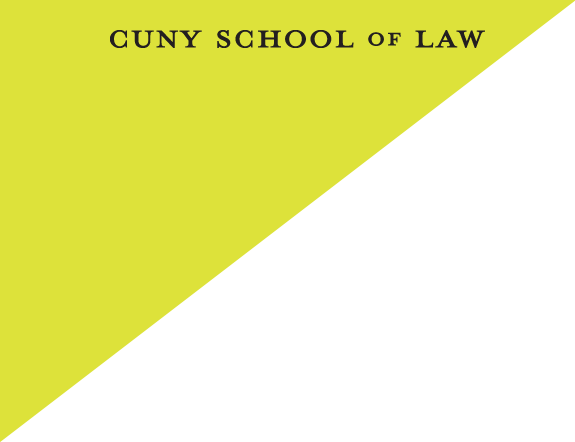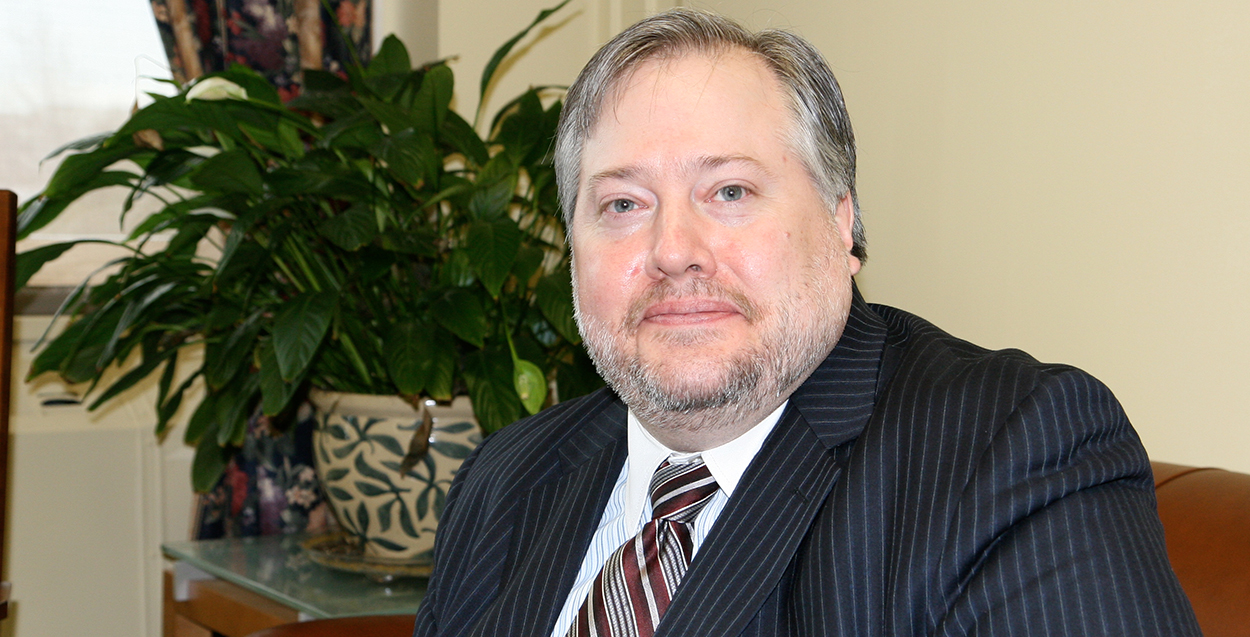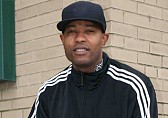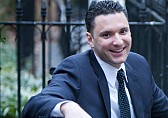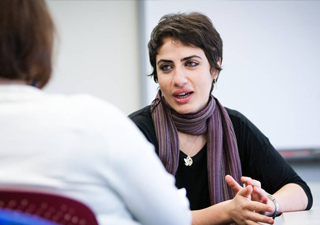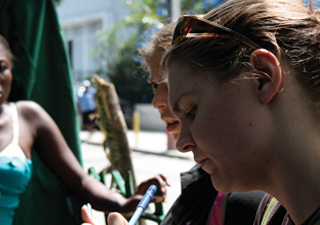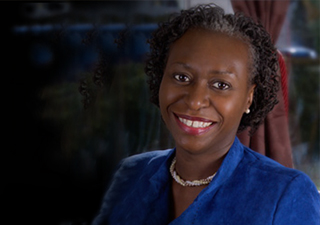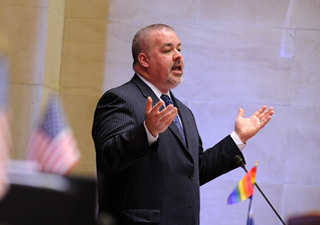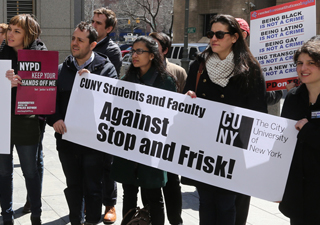Jonathan LibbyAlumnus class of '96
It’s not every day that you get to present a case before the U.S. Supreme Court, but that’s what Jonathan Libby (’96) found himself doing earlier this year with United States v. Alvarez, also known as the “Stolen Valor” case.
And he won.
“It was pretty exciting,” said Libby, a deputy federal public defender in Los Angeles, on his first Supreme Court appearance. “It was a great opportunity.”
Not that he was entirely happy to be there before Chief Justice John Roberts, and battling dissenting justices Antonin Scalia, Clarence Thomas, and Samuel Alito.
“I’d won in the Ninth Circuit [Court of Appeals], so we had opposed the case going to the Supreme Court; they took the case over our objection,” he recalled.
Libby’s client, Xavier Alvarez, a former local elected official in the L.A. area, had been prosecuted under the Stolen Valor Act, a federal law that made it a crime to lie about receiving military awards.
“He stood up at a public meeting and claimed he had been a Marine and had received the Congressional Medal of Honor,” said Libby. “That was all a lie.”
Libby argued that it was his client’s freedom-of-speech right to say what he chose, and that lying was protected under the First Amendment.
Although the district court rejected the argument, the U.S. Court of Appeals agreed with Libby, striking the Alvarez conviction and declaring the statute unconstitutional. The government then appealed the case to the Supreme Court.
To get ready for his date with the highest court in the land, Libby turned to Professor Ruthann Robson, who had taught Libby at CUNY Law.
“She set up a moot court for me at CUNY,” Libby said. “An awful lot of work went into preparing both the brief and the oral argument.”
During the oral argument, the justices probed the breadth of the law, which made lying a crime, even if there was no personal gain involved.
“We were then discussing what would constitute something of value,” recounted Libby, for example, “whether that would include a date. Would it make a difference if the date was wealthy or not? Would it include someone buying a beer for you when you told a lie in a bar, or if they allowed you to walk in a parade?” In a six-to-three vote, the justices struck down the Stolen Valor Act, and agreed that it was Alvarez’s First Amendment right to lie, so long as it did not cause harm to others. The ruling came on the last day of the Supreme Court’s term, June 28, and had taken four months.
With the Alvarez case behind him, Libby has returned to arguing cases before the U.S. Court of Appeals, “from the minor stuff”—such as defending a client ticketed for smoking marijuana on federal land—”all the way up to multiple murders.”
Libby credits CUNY Law School for readying him to be a public defender. “I was in court making some appearances before my bar results had come in,” recalled Libby. “CUNY Law prepared me for that. It’s focused on training lawyers to do public service and work in the public’s interest. That’s what I always intended to do.”
Libby went on to become a federal public defender in his hometown of Philadelphia before moving to Los Angeles for a PD job in 2003.
He has always been thankful for his CUNY Law education. “The federal public defender’s office is highly selective in who they hire,” Libby said. “The overwhelming majority of the attorneys I work with attended top-ranked law schools: Yale and Stanford and Harvard. And certainly they learned nothing more at their schools than I learned at CUNY.”
